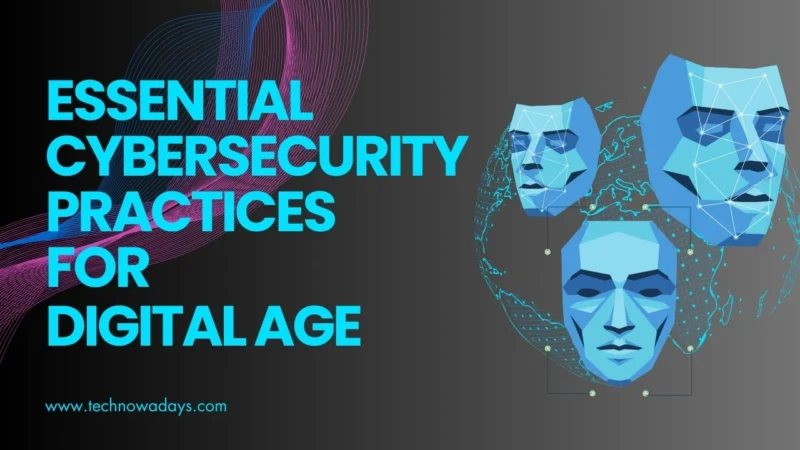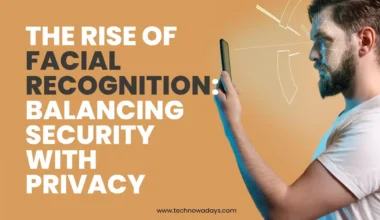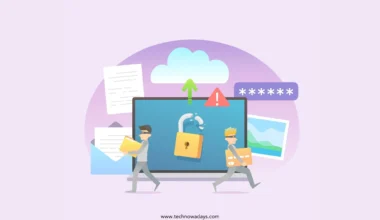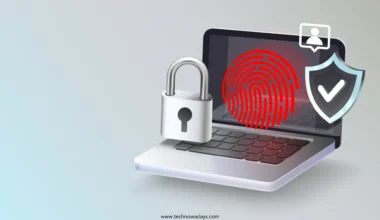We are living in the age of an interconnected digital world, where everything is connected to the internet. It has become an economic landscape for several businesses and enterprises with huge potential for business growth.
Therefore, it is necessary to keep your data secure on this global platform by applying essential cybersecurity practices, as hundreds of people become victims of different cybercrimes daily.
According to statistical analysis, 43% of small businesses have been the victim of cyber attacks in 2023, which had damaged their market reputation. Today, we secure your digital journey by discussing potential threats and essential cybersecurity practices. Let’s start with a simple background!
What is cybersecurity?
In a simple way, it is the end-to-end protection of any data or network. Cybersecurity has become a vast discipline, including the security of information, assets, and networks on any digital platform from unauthorized access.
On digital networks, some unauthorized individuals can steal, alter, and illegally use the information belonging to anyone. They can tamper with the files or destroy any evidence that you have saved on your cloud storage.
This multi-faced discipline touches several fields relevant to information security, network security, information technology, and computer science.
Attacks refer to any unauthorized person, and cyberattacks can take different forms, such as phishing attacks, malware, trojans, and worms.
For more of your undertaking, a cyberattack happens when someone tries to reach an organization’s systems to disrupt, disable, control, damage, or steal their confidential data.
Common Cybersecurity Threats
Before discussing essential cybersecurity practices, you must know about common threats and how much your system and device are exposed to these types of threats.
- Phishing Scams: Phishing is a social engineering method for stealing information. The attacker sends a fraudulent email that seems to come from an authentic source. Their goal is mainly to steal credit card numbers, login information, and other credentials. Moreover, they can install malware to control the victim’s system. It is essential to learn about phishing to keep yourself safe from scams.
- Data Breaches: It is simply the unauthorized access of confidential or sensitive information by any outside party. People steam or disclose unauthorized information about any organization or individual for different motives, including to destroy their reputation, use it for political activities, get financial benefits, or steal business details. Therefore, it is essential to keep your data secure by using strong passwords and not keeping the credentials stored in cloud storage.
- Malware Attacks: These are harmful programs, also called malicious software, that can damage or take control of your system. Cybercriminals mainly design this software to disrupt any computer or network. They can steal information and act as spyware that leaks any network’s sensitive and confidential data. By using malware, you can control the network or system and get access to all the unauthorized files and personal information.
- Ransomware Attacks: They are also a more insidious type of malware attack. In this type of attack, the attacker encrypts all the information, files, and computer systems of the victim and makes them inaccessible for the owner until he pays a ransom to the cybercriminal. These types of attackers target business owners, political activists, governments, and reputable personalities to threaten their reputations among the public. Attackers use emails, compromised websites, and malicious links to get into the victim’s system.
Essential Cybersecurity Practices
According to Forbes, there are around 5.35 billion internet users worldwide every day, which makes up 66% of the world’s population. These people use the Internet for different purposes, such as education, business, banking, communicating with others, and many more.
They are expected to encounter any malicious attack and become victims of any cybercrime, as several people face it daily. According to Norton, 2,200 people get scammed daily by different types of cyberattacks worldwide.
Moreover, their frequency is increasing at a risky speed, as 92% of IT leaders believe that the number of cyber-attacks rose to a great extent in 2023.
Use Long and Strong Passwords
Passwords are like the first line of defense for your device and online accounts. It is essential to keep the passwords strong and unbreakable to secure your account. To create a unique and unpredictable, follow the given principles:
- Complicated and Lengthy: More than eight digits must complicate your password. A lengthy password of around 12 digits with several lower case, and upper case letters, numbers, and special characters are hard to predict for any attacker.
- Keep the Password Unique: Some people tend to use similar passwords for different accounts. This is a very dangerous approach to password creation. If an attacker finds out about one password, the security of all other accounts will also be compromised. Therefore, always use a new or unique password for each account.
- Use Password Manager Tools: Several password manager tools are available on the Internet that help you generate secure and strong passwords for different accounts.
Guardian Against Online Threats
There are several tools and software available to catch and counter all types of malicious attacks and viruses. You can keep your device secure by using the following methods:
- Install Antivirus software: We all installed different antivirus software on our computers or laptops to keep the system secure from outside threats and cyber attacks. These programs are quite helpful as they can easily detect, catch, and kill the potential harm or threat available in your system.
- Virtual Private Network: If you install a VPN while using a public network, the VPN will keep the information secure by encrypting your connection. It adds a layer of security and privacy to the network and secures the information flow.
- Public Wi-Fi Risks: You should avoid connecting to public Wi-Fis. Attackers can easily take advantage of the security vulnerabilities of any unsecured network. To keep your system secure, you should always use a VPN while connecting to any public Wi-Fi.
Be careful on Social Media
Social sites are one of the most risky places with higher rates of cybercrime. People usually get scammed by different attackers while using social media apps.
The hacker can hack your account and leak private conversations, your personal photos, information or anything that you do not want to share in public. Therefore, it is essential to be careful when using social media.
There are some considerations that you must follow to be a wise social media user:
- Share with Care: You should be very careful while sharing any information, photo, or video with someone on the internet. Any hacker can use this information against you or ask for any financial benefits with the threat of a data leak.
- Privacy Settings: Keep the account secure with essential privacy measures. On different apps, you can control who can send you messages, see photos, and share your posts.
- Two Factor Authentication: Several apps allow you to enable two-factor authentication, adding another protection layer to your social media accounts.
Awareness of Email Security
Most cyber crimes start with phishing, where an attacker sends a malicious email to the victim to attack their system. Therefore, learning about email security is essential to protecting yourself from these attacks. When dealing with emails, you must consider the following important points.
- Phishing Threats: Whenever you receive a suspicious link in an email, do not click the link or share any personal information. Always verify the email address and the source of the email by double-clicking the URLs before performing any other action.
- Grammar Mistakes: Suspicious emails usually carry a lot of spelling and grammatical errors.
- Urgent Request: These emails mostly encourage the receiver to take immediate action by asking for personal information. In these situations, you should consider the actions they want you to take and the information they ask about.
- Unknown Attachments: Do not open attachments sent by unknown or suspicious senders.
- Report Emails: If you receive a suspicious email, report it to the company and block the email address to keep your system secure.
Final Thoughts
In this digital age where the world runs with the speed of the internet, every business and industry is linked to the internet and different social media networks, and it is very essential to keep yourself secure from unwanted cyber-attacks.
In order to do that, you have to understand and spread awareness about different cybercrimes; similarly, by using essential cybersecurity practices, you can reduce the risk of cyberattacks and keep your data secure.
Moreover, legal authorities and policy-making departments are responsible for creating new and strict regulations against cybercrime to provide a safe environment on the Internet for communication and business. With united efforts, we can strive toward a secure digital world.




